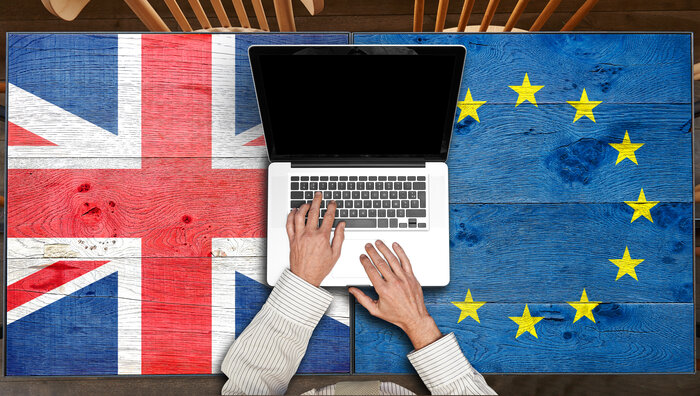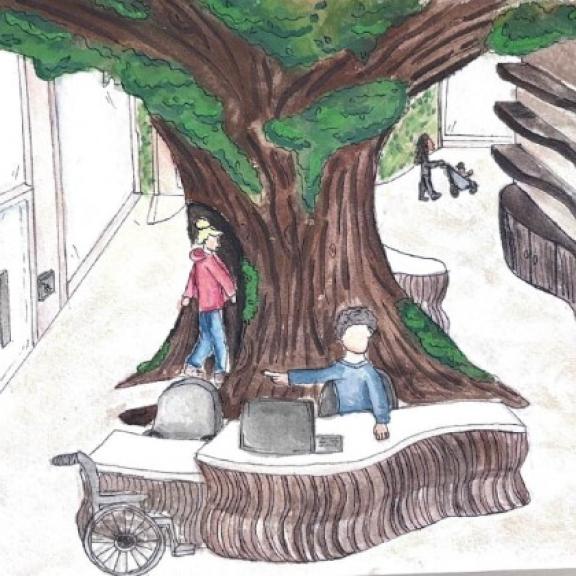How the Brexit transition will affect designers
Leaving the EU on 1 January 2021 will bring new rules. We examine the changes that may impact your interior design practice.

It’s been a long countdown, but the UK will finally leave the EU at the end of December. From 1 January 2021, there will be new rules to follow in areas such as import and export, data, and employment. Use our guide to see which changes might affect your business and be prepared for the transition.
Do you need to act?
You will be affected by the transition if you:
- Travel to the EU
- Work in the EU
- Employ staff from the EU
- Receive and transfer data to/from organisations abroad
- Import goods from the EU
- Export goods to the EU
- Move goods to or from Northern Ireland
Scroll down for the information on any of the above that apply to your interior design practice.
Travelling to the EU
There are extra actions all visitors to the EU will need to take after 1 January 2021, and there are additional measures required when you’re travelling in the course of your business.
Before travel for any purpose:
- Check your passport has at least six months left on the day you travel, and that it’s less than 10 years old.
- Organise travel insurance to cover healthcare.
- If you’ll be driving, check you have the correct documents.
- If you (or your employees) are going to the EU in connection with your interior design practice, you will have to:
- Check whether the country you (or they) are travelling to has its own entry requirements, or requires particular documents.
- Have your (or their) UK professional qualification officially recognised if necessary. In countries where a profession is regulated, access and exercise is subject to the possession of a specific professional qualification, and it needs to be recognised by the appropriate regulator in each country where you intend to work even if your services are temporary or occasional. At the time of writing, interior design is only a regulated profession in Luxembourg and Iceland. You can check the current information via the European Commission’s regulated professions database.
Check the full details of the requirements for business travel.
Working in the EU
It’s important to note that from 1 January 2021, services provided by UK businesses and professionals will be regarded as originating from a third country, resulting in the possibility of additional legal, regulatory and administrative barriers.
The government advises checking the national regulations of the country where you’re doing business. There is a selling services guide to each country in the EU, Switzerland, Norway, Iceland and Liechtenstein.
Employing staff from the EU
If you employ staff from the EU, you should encourage them to apply to the EU settled status scheme if they haven’t already done so.
If you are checking an EU citizen’s right to work, you will need to do this in the same way as now until 30 June 2021.
A new immigration system will begin from 1 January 2021, and EU citizens who move to the UK to work will need a visa in advance. You can find full details of the new immigration system here.
Receiving and transferring personal data
Personal data is any information that can be used to identify a living person, including names, delivery details, IP addresses, or HR data such as payroll details.
If you receive and transfer personal data to/from organisations abroad, including the European Economic Area (EEA), which includes the EU, or operate in the EEA, from 1 January 2021 your organisation may need to have standard contractual clauses (SCCs) in place with EU counterparts in order to legally receive personal data from the EU.
Note that if you are sending personal data to the EU, there are currently no changes required.
Check the guidance on using personal data in your business.
Importing goods from the EU
From 1 January 2021, you will need to make customs declarations when you import goods from the EU. You can make these yourself, or use a courier, freight forwarder or customs agent. You will need an EORI number that starts with GB to import goods. Customs duties and VAT are due on all imports.
Check the details on importing goods from the EU.
Note that guidance for receiving goods by post is different.
Exporting goods to the EU
You’ll need to make customs declarations if you’re exporting goods to the EU from 1 January 2021. You can make these yourself, or use a courier, freight forwarder or customs agent. You will need an EORI number that starts with GB to export goods.
You can charge customers VAT at 0 per cent, ie zero rate, on most goods you export to the EU.
You will also need to check if an EU business you’re exporting to is ready. It needs to make the necessary import customs declarations.
Check the details on exporting goods to the EU.
The guidance for sending goods by post is different.
Moving goods to or from Northern Ireland
You can read guidance on moving goods into, out of, or through Northern Ireland on the government’s website.
However, at the time of writing, the government states, ‘Until negotiations with the EU conclude, there will be some areas without complete certainty, but full guidance will be provided by the end of the transition period.’
Checking if you need to pay a tariff on imported goods
From 1 January 2021, the UK will apply a UK-specific tariff to imported goods, replacing the EU’s common external tariff. You can use the UK global tariff tool to check the tariffs for any goods you import.
Consider other issues
There are other issues brought about by Brexit you might like to bear in mind:
- Your mobile phone provider may no longer offer surcharge-free roaming when you travel to EU and EEA countries.
- Travel to the EU may take longer because of border checks.
- You may need an international driving permit if you’re going to drive abroad and, if you’re taking your own vehicle, if it’s UK registered, you’ll need a GB sticker.
Get personal guidance
Go to the government’s Brexit transition information on its website, and you can get a personalised list of actions for your practice, and to fit your family and personal circumstances. Sign up for updates, too, as what you need to do could change.
Explore new resources from the BIID. Seeing a padlock? Just login or become a member to view.
View the highlights from our 60th anniversary party
We asked Anna Burles: What makes the perfect software?
Discover the smart home technology awards with Platinum Partner, CEDIA
Explore the latest, member-exclusive, templates designed to make your life easier.
University of Gloucestershire wins the BIID Student Design Challenge 2025.





